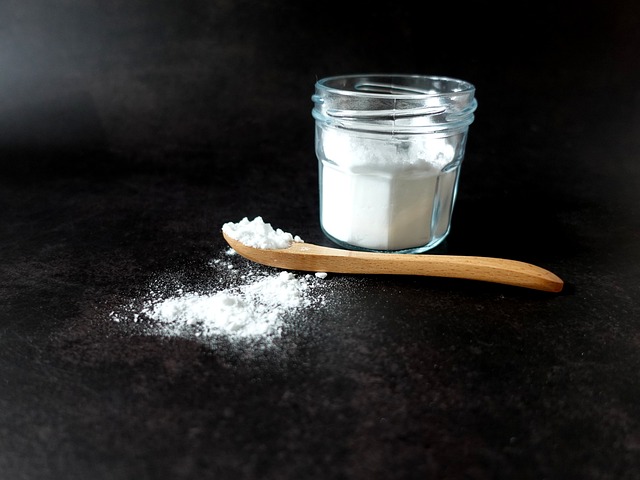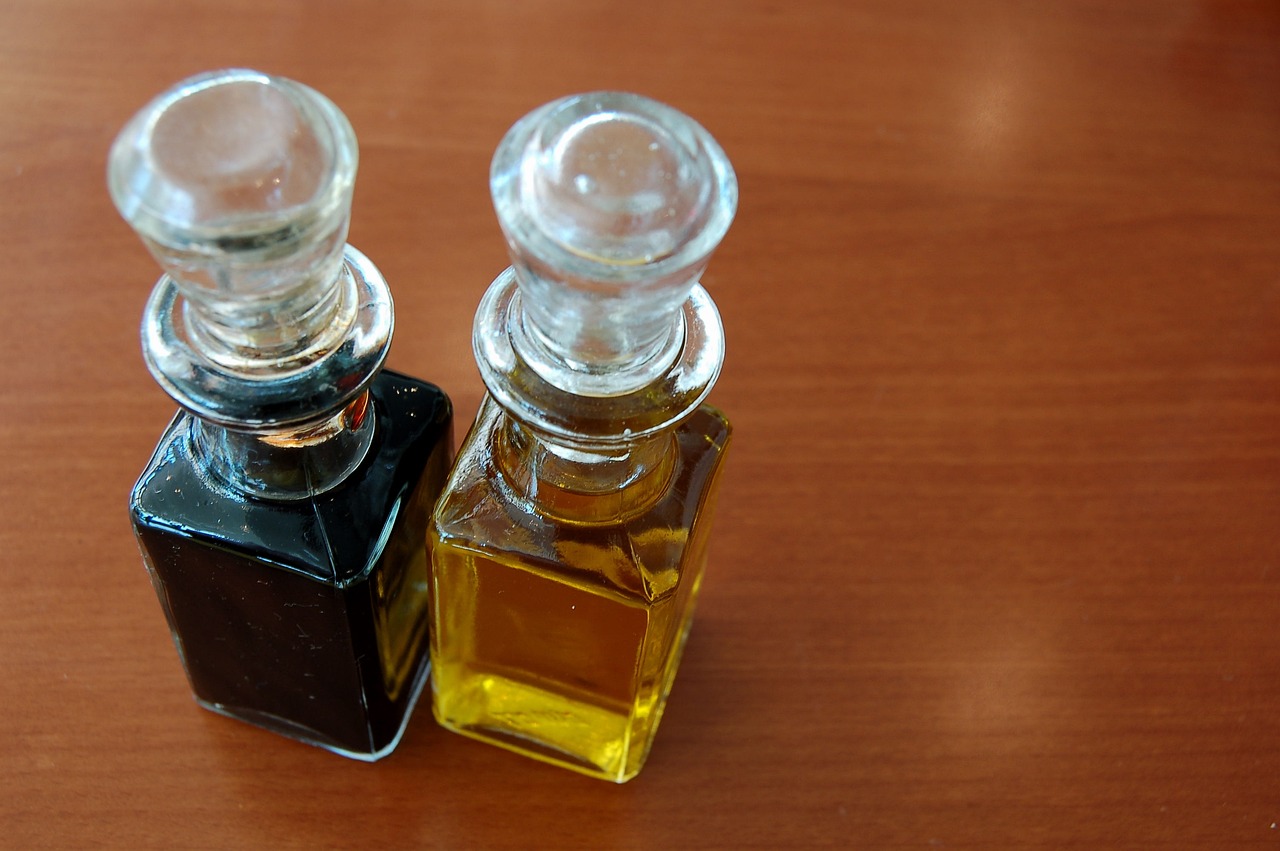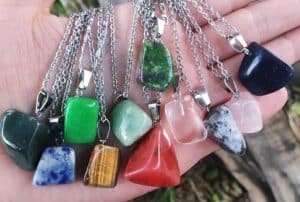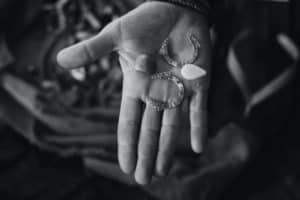Would you wear your jewelry if it is not clean or shiny? I guess not. We all want our precious jewels to always shine. However, due to reactions with gases present in the air or coming in contact with some contaminants, these ornaments often lose their luster and turn dark. Taking it for professional cleaning services every time can be expensive and tiring. Why not handle it yourself?
You may not know, but many things at our homes can be great jewelry cleaners. Among them, vinegar is the most talked about. Vinegar is effective, yet tricky, when it comes to cleaning jewelry.
Vinegar is acidic and can work well on pure gold and silver jewelry and make them look like new within minutes. While it is great at cleaning some metals and surfaces of certain gemstones, it may not be safe for others. Being acidic, it may dissolve the metal leaving the jewelry weak or sometimes tarnished if the metal is exposed to it for longer durations. Therefore, one must know what metal or gemstone they are trying to clean using vinegar. Knowing the duration of soaking or cleaning with vinegar is also crucial.
So, in this article, we have covered all the questions related to jewelry cleaning using vinegar. How effective can it be? Can it ruin your expensive ornaments? What is the process?
Before we begin, one thing to consider here is, we are referring to white vinegar and not cleaning vinegar. While the difference in acidity between the two is of 1%, cleaning vinegar is about 20% stronger than white vinegar. Apple cider vinegar also works well when it comes to cleaning jewelry as it is mildly acidic.
Is it safe to clean jewelry with vinegar?
It depends! If your jewelry has gemstones, it might not be safe. Some gemstones may lose their color or shine on coming in contact with it. For jewelry made out of only metal, it is mostly safe. However, if used too much, the acidity of vinegar can have negative effects such as corrosion on fine metals. If not handled with caution, it may also dissolve the material itself or the glue used to stick stones to the metal. Therefore, when cleaning your jewelry for the first time, you might want to dilute it with water to reduce the acidity. This will help minimize any negative impact it may have on your jewelry.
Vinegar is considered one of the best cleansing agents for almost everything. But it works especially well for jewelry because of the following properties.
- Vinegar is a solvent: This is why it can dissolve and banish the tarnish on ornaments with ease.
- The right acidity: The acidity of the vinegar is strong enough to dissolve tarnish but not that strong to dissolve the whole material, thus providing a perfect balance. Some precautions can even reduce these little chances of the material being dissolved in solution, for instance, keeping the duration in mind.
- No strong odor: It doesn’t have an unpleasant odor to make you feel uncomfortable after the process.
- Not abrasive: It is not an abrasive compound like bleach or chlorine solutions that takes away some of the metal after every cleaning process.
Let us now look at how vinegar may be used for different types of jewelry.
GOLD JEWELRY
Does vinegar harm gold?
Pure gold being inert does not react with vinegar and remains unaffected. However, we know that it is impossible to make jewelry out of 100% pure gold. Therefore, metals like copper, silver, iron, zinc, cadmium and titanium are added to strengthen it. Some manufacturers also add nickel. Vinegar does react with most of these metals.
Cadmium, Titanium, palladium and platinum being inert, do not react with vinegar. However, vinegar may turn copper, silver and Iron black if not used right. On reacting with zinc, vinegar will create hydrogen gas. It can also dissolve metals like iron and leave pits in your jewelry.
At the same time, as mentioned above, it must be remembered that vinegar is an acid, and so it can corrode substances if they are put into it for a long duration. The same is the case with gold. This is why, the best home cleaning solution for Gold is mild liquid soap in very less quantity in warm water if you are cleaning your jewelry for the first time and not yet an expert at it.
Steps to clean
To clean your gold jewelry with vinegar, you can follow the following steps.
- Step 1– Take some vinegar in a bowl.
- Step 2– Let your jewel soak into it for 10-12 minutes.
- Step 3– Shake it occasionally.
- Step 4– Take it out. You may use a soft brush to rub the piece to ensure that vinegar reaches everywhere and no residue can sit.
- Step 5– Rinse with a solution of mild soap and water. You can also add a pinch of baking soda to the solution. Make sure you rinse 2-3 times to ensure that there is no vinegar left on your jewelry.

SILVER JEWELRY
Does vinegar remove silver tarnish?
Yes, vinegar is acetic acid. It reacts with silver to form silver acetate. So if you clean silver tarnish with vinegar, you will see a black layer forming on it (which is silver acetate). For this, you can dip your silver in vinegar for about 15 minutes. You can take your silver out and then clean this black layer with a piece of muslin cloth. After this, please wash your silver with baking soda to remove any unwanted vinegar from being stuck on your silver. You may repeat this process 2-3 times if you do not achieve the desired results in the first attempt.
Can I use vinegar to clean sterling silver?
Yes, Vinegar is one of the most recommended materials for cleaning and polishing badly tarnished sterling silver. It can easily separate the tarnish from the silver exposing the lustrous layers beneath. However, while applying it, you need to consider the type of silver you are using it for, the tarnish you intend to remove, etc.
- Avoid using vinegar for lightly tarnished sterling silver
- Avoid if your sterling silver has any kind of stones
- If your sterling silver piece has darker hues in areas to make it appear more appealing and antique, do not keep it in vinegar for longer than 5 minutes at a time.
- Post cleaning with vinegar, clean your silver with baking soda powder by rubbing it gently on the item. Wash it with a solution of soap and warm water. This will help get rid of any extra vinegar on the item.
Let’s look at some of the common ways you can clean your silver with vinegar.
- Using undiluted vinegar
You can use it undiluted to get rid of light to medium tarnish from your silver ornaments. However, don’t leave it for too long, and remember to wipe off the vinegar from the ornament. Otherwise, it will dissolve all your silver, leaving it discolored even worse.
- Using vinegar and baking soda
To prevent the silver from getting dissolved, you can add some baking soda to it. Vinegar being an acid, reacts with the basic baking soda. This neutralization reaction leads to the formation of a new compound called sodium acetate along with water and carbon dioxide (rising through bubbles). This new product dissolves the compounds capable of discoloring your ornament, ensuring a better and safer cleaning.
Make sure to take excess baking soda in comparison to vinegar. It’s even better if some of its crystals can be seen lying ideal beneath. It ensures that vinegar won’t eat off your silver.

- Using vinegar, baking soda, aluminum foil, and boiling water
This process is considered the most reliable and efficient one. There are two ways of cleaning silver. It can be either done by stripping off the tarnish or making it go through a reverse electrochemical reaction.
Silver turns black because of its reaction with atmospheric sulfur forming silver sulfide. But what if we get something that has a higher tendency towards sulfur than silver. This is where aluminum foil comes in handy. It absorbs the sulfide, whereas vinegar and baking soda do their work. Adding boiling water and salt can speed up the process.
For this, line a bowl (preferably ceramic) with foil. Add your silver and pour boiling water over it. Now add vinegar, baking soda to it. Don’t forget to follow the same old rule of putting extra baking soda.
- Other available options
To add more acidity to emit all the stubborn stains, you can add some ketchup into the mixture. However, beware that acid corrodes metals. So use them cautiously and wipe them off properly. There are some other ingredients also to increase the efficiency of the process, like tree oil.
Does vinegar harm sterling silver jewelry?
Silver, just like gold, has low reactivity. A true vinegar solution is just a mixture of acetic acid in water. Since silver doesn’t react with water and vinegar is also a weak acid, the chances of this solution being harmful to your ornament are low. Even if some reaction occurs, their efficiency will be less.
However, you must remember that something that can take off the tarnish can have an impact on your ornament as well if left in contact with it for too long. So maintain the duration, and then wipe off all the residue carefully so that they won’t harden over your jewelry with time.
DIAMONDS
Does vinegar clean diamonds?
As we all know, diamond is the hardest and densest material. Hurting a diamond is not something that acid as weak as vinegar can do. It has a pH of around 2.5, which means it is even weaker than lemon juice. Moreover, the carbon atoms in a diamond are arranged in such a compact way that it doesn’t allow the Hydrogen H-atoms of vinegar to react with them, forming any new compound. So chemically, acetic acid is safe for your diamond.
Caveat:
When it comes to diamond jewelry, watchout for 2 things:
- if there is glue or some solution holding on to the gems in the jewelry. If yes, avoid usig vinegar. This is because use of vinegar may wash away rubber solutions or other types of glues. This may loosen the grip your jewelry has on the diamond
- if your jewelry has any other type of stone. This is because some jewelry items have a combination of other stones like zircon, sapphire or emeralds along with diamond. Vinegar may be damaging to those stones.

Can you clean gemstones with vinegar?
Not all of them, it depends on the gemstone. Different gemstones have different physical and chemical properties. This means that they can react differently with different elements and compounds. It majorly depends on the hardness and porosity of the gemstone.
Some of them may lose their upper layer or may even develop cracks or bumps on the surface after being cleaned with vinegar. So proper research about the material is needed before the cleansing process. Some generic rules one must follow while cleaning gemstones are:
- Look for cracks or gaps: If your gemstones has cracks or gaps on the surface, clean them only with gentle soap and water solution
- Avoid boiling hot water: Steaming hot water can be detrimental to most gemstones. You can use warm to medium hot water. However, try to avoid boiling hot water.
- Check for fracture filling: A lot of stones are fracture filled. This is very common in a lot of gemstones. You may check the same with your jeweler. Warm soapy water is the safest cleaning method for such stones.
- Check for dye: if your stone is dyed to enhance the color, avoid using ultrasonic cleaning machine for them. It may damage the color.
- A clean lint free soft cloth always works: You can always use a soft (non-abrasive) and clean cloth to gently wipe clean your gemstones if you are not sure what method is safe for your stone.
- Clean under the stone: Under the stone is where most of oil, dirt and moisture accumulates. You must clean under the stone with caution so that you do not make the grip the metal has on the stone loose.
- Avoid thermal shock: Most of the gemstones do not respond well to thermal shocks. While a lot of them are okay coming into contact with hot water, sudden thermal shocks may lead to cracking in most stones.
- Rinse and dry well: When you are using acidic solutions to clean your crystals, it is imperative to remove any acid before your crystal dries. This makes rinsing thoroughly highly crucial. Cleaning with soap and water solution is the best way to remove any acid deposits.
We have listed down some gemstones and the cleaning techniques that work for them. Hope it helps.
| Hardness | Vinegar | Soap and Water Solution | Warm Water | Soaking | Ultrasonic Cleaner | |
|---|---|---|---|---|---|---|
| Diamond | 10 | Yes | Yes | Yes | Yes | No |
| Ruby | 9 | Yes | Yes | Yes | Yes | Yes |
| Sapphire | 9 | No | Yes | Yes | Yes | Yes |
| Topaz | 8 | No | Yes | Yes | No | No |
| Emerald | 8 | No | Yes | Yes | No | No |
| Spinel | 8 | No | Yes | Yes | Yes | No |
| Garnet | 7 | Yes | Yes | Yes | Yes | No |
| Quartz | 7 | Yes | Yes | Yes | No | No |
| Amethyst | 7 | Yes | Yes | Yes | Yes | Yes |
| Citrine | 7 | No | Yes | Yes | Yes | Yes |
| Pearls | 2.5-4.5 | No | Yes | No | No | No |
| Zircon | 6-7.5 | No | Yes | No | Yes | No |
| Agate | 6.5-7 | Yes | Yes | Yes | Yes | Yes |
| Opal | 5-6.5 | No | No | No | No | No |
| Turquoise | 5-6 | No | No | Yes | No | No |
| Moonstone | 6 | No | No | Yes | No | No |
| Aquamarine | 7.5-8 | No | Yes | Yes | Yes | Yes |
| Amber | 2-2.5 | No | Yes | No | No | No |
How long do you soak the jewelry in vinegar?
It is suggested to let the jewelry sit still in vinegar for at least 5-7 minutes. Of course, this time differs based on the type of material you are working on. You may soak longer for deeper clean. Also, you will need it to stay like that for more time if their tarnish is not getting off. You can keep taking your jewelry out to observe the results and wipe it with a muslin or lint free cloth in between. A soft bristled brush may also be used to clean jewelry in between dips. However, it must not be kept for too long since it can harm the material.
Bottom line
Using vinegar for jewelry cleaning is surely proven to be a great idea in many cases. But being an acid, it is still recommended to use some milder options. If your piece doesn’t have stubborn stains that cannot be handled with these simpler solutions. Do your research properly before experimenting with your precious investment. Dilute vinegar with water when cleaning a piece of jewelry for the first time. Also, rinse your jewelry thoroughly once done. Removing any traces of vinegar from the jewelry is crucial as it may otherwise speed up oxidation.
It is always advisable to check with your jeweler about what is safe for a particular piece of jewelry as they are aware of the metallic composition and about the quality and condition of the gemstones.
One important thing to consider is that we must not over clean our jewelry. You may be losing some amount of precious metal or a layer from your gemstone while cleaning. By overcleaning, you may actually be harming your jewelry.
Happy cleaning!!!




